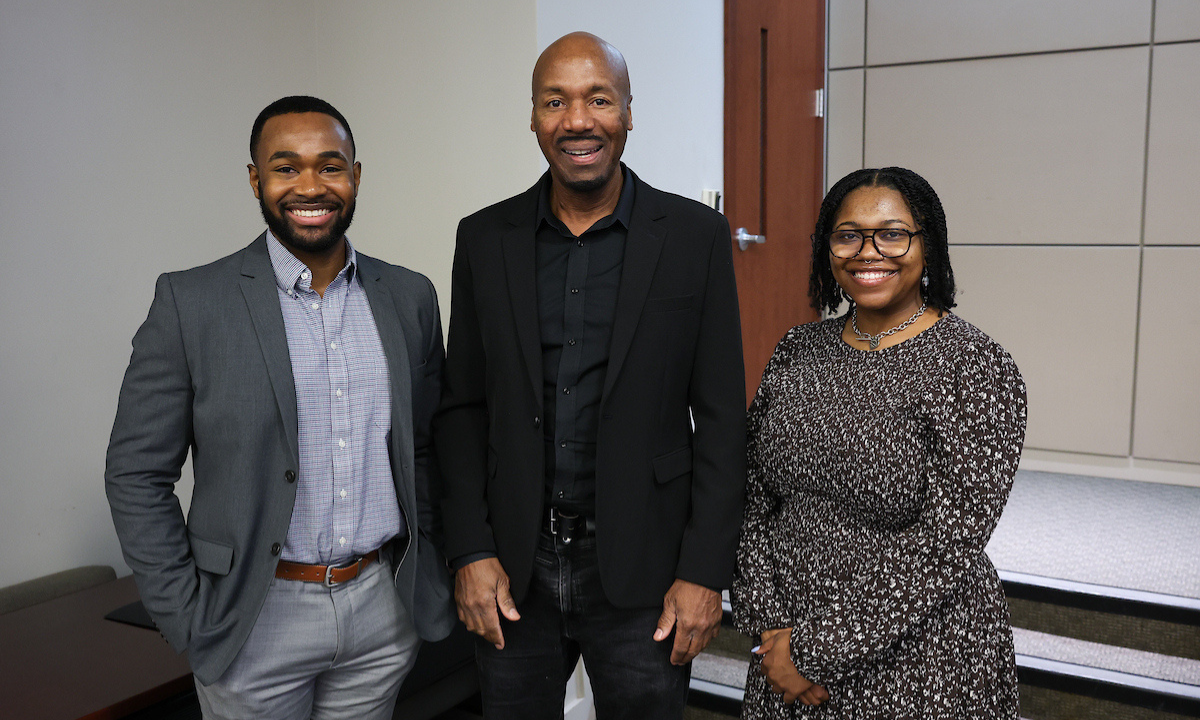Earlier this month, Vanderbilt Law School hosted Paul Butler for its Black History Month Keynote Address. The event was sponsored by the Hyatt Fund, the Office of Culture & Community, and the Black Law Students Association.
Butler is the Albert Brick Professor in Law at Georgetown University Law Center and a legal analyst at MSNBC. In his address, Butler discussed the criminal justice system, focusing on specific issues he explored in his book Chokehold: Policing Black Men. He emphasized the need for positive alternatives to incarceration and the challenges of balancing reform with transformation.

Butler opened by recounting his experience as a state prosecutor. “I represented the government in criminal court, and I used that power to put black men and women in prison,,” Butler said. “Like a lot of prosecutors, that I was pretty much all I did…I should have asked more questions about whether I was on the right side of racial justice.”
For context, Butler explained the history of stereotypes of black men, which he argued began as comical and non-threatening until emancipation.
“Emancipation changed everything; suddenly in the white imagination, black men were violent,” Butler said. “Then the law began doing some of the work that slavery did.”
Butler discussed the rebellions to these stereotypes throughout the country, as well as the laws inspired by them. He explained how the Supreme Court allowed for more people to be arrested and incarcerated than ever before, seen explicitly in its Terry v. Ohio (1968) Decision.
“Terry [gave] the police the power to detain people and investigate them to see if there’s something that they might be arrested for,” Butler remarked. “As a result of these new powers, now the jails and prisons are teeming with black people. There are now more black people in the criminal legal system today than there were enslaved people.”
“So [in] my most recent book, I’m focusing on the police and one manifestation of the problem. Everyone agrees there’s a problem, [but] people don’t agree on what the problem is,” Butler explained .
When Butler considers the arc of his experiences – as a prosecutor, scholar, and as a black man, he finds himself most persuaded by activists. “I’m most persuaded by the activists in the movement of black lives,” Butler said. “The criminal legal system is not about keeping families and communities safe. It’s about keeping black people in their place.”
His book details how the Supreme Court has given “super powers” to police — “to arrest, to profile, and to kill” — which have impacted black and other marginalized communities.
He told a story of a woman in Ferguson who called the police because her partner was beating her up. When the police got to her home, he had left, but she ended up getting arrested because her partner was not on her residency permit.
“When that happened to that woman in Ferguson, she said she would never call the police again. She didn’t care if she was being killed,” Butler said. “That’s legal, that’s constitutional; these cases make it constitutional for black lives not to matter.”
For Butler, there is something “adamantly unsettling” about police violence against the black community that is particularly linked to black populations taking to the streets and advocating for justice.
“It’s almost like we are saying we can deal with segregated schools, we can deal with convict leasing, we can deal with poison water in Flint, Michigan. But there is something about being under violent attack by the people who are supposed to serve and protect that [has] caused people again and again to take it to the streets.”
Butler concluded by emphasizing the need for reform in the U.S. criminal system and policing system in order for black communities to fully gain independence and success.
”The question is, can we use our, let’s call it our American entrepreneur, our black excellence, our latinx genius to come up with ways of keeping people safe, keeping families whole, that doesn’t involve black community in cages.” Butler said.